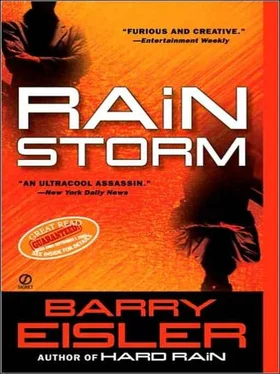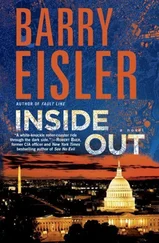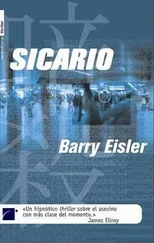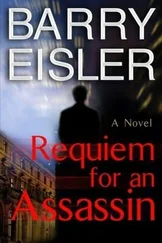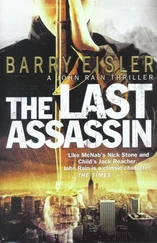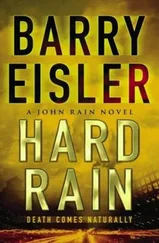“Meaning?”
“Meaning something happened in Macau recently that got his attention. Maybe something like, a French national who turns out to be a known independent contractor is found dead there with a broken neck. Which he asked about, specifically.”
“Yeah, you mentioned something about that. The guy was a contractor?”
“I just said so,” he said, looking at me.
He was catching on to the way I was leading him by feeding back pieces of what he’d just said. Good for him.
I smiled. “What did our friend want to know about the contractor?”
“Was he on our payroll.”
“Was he?”
“No.”
I looked at him. No way to tell whether he was lying. For now.
“Who was the contractor working for, if he wasn’t working for you?”
“I don’t know.”
“Who do you think?”
He shrugged. “Why would you care? My guesses, about the woman, for example, are usually way off base.”
I laughed. “That’s true,” I said. “But I find them amusing anyway.”
He smiled, apparently having figured out that it was smart not to let me get a rise out of him. “I really don’t know,” he said. “And there are a lot of other things I don’t know, either. I’m already speculating to fill in the gaps. I think what happened was, Belghazi’s people learned about the dead French guy and got spooked. ‘Who was he? Could he have been after Belghazi? Who hired him?’ Belghazi is a professional paranoid. You know the type. I’m sure he would have investigated.”
“You’re saying there’s a connection between Belghazi and the Agency guy who visited you recently?”
He was quiet for a moment, then said, “Let me tell you about those phone numbers you gave me.”
“All right.”
“First, the cell phone you picked up operates on a plan from Saudi Telecom, although the subscriber is an obvious corporate front that hasn’t led us anywhere yet. Second, whoever was using the phone placed repeated calls to a certain Khalid bin Mahfouz, who’s a general with Saudi intelligence. Mahfouz liaises with key members of some of the groups the Saudis fund-Hamas, Islamic Jihad, Hezbollah. Mahfouz controls the funding to these groups, so if he asks them for a favor-say, muscle for an unrelated job in an unrelated place, he gets what he asks for.”
“Is Mahfouz on the list?”
“I’m sorry, other than what I’ve of necessity told you, you don’t need to know who is on or not on the list.”
“Then tell me how this leads to Belghazi.”
“Belghazi makes sure Mahfouz gets a cut of all Belghazi’s weapons deals. So if Belghazi has a problem, he calls Mahfouz. Belghazi spreads around a lot of patronage. He can ask for a lot of favors.”
“All very interesting,” I said, “but so far the connections you’re offering me seem a little thin.”
“I know they’re thin. I don’t have all the answers, but I’m trying, all right? And I’m telling you things that I probably shouldn’t, partly because I owe it to you after what just happened in Hong Kong and Macau, partly because I’m concerned that, if you’re not satisfied that I’m leveling with you, you’re going to do something unwarranted, possibly involving me.”
“All right, keep going, then.”
He exhaled forcefully, his cheeks puffing out slightly as he did so. “Do you know that, in mid 2002, word leaked to the press that the semiofficial Defense Policy Board, which recommends policy to the Pentagon, had written a report concluding that, quote, ‘The Saudis are active at every level of the terror chain, from planners to financiers, from cadre to foot soldier, from ideologist to cheerleader’? The Secretary of the State was mobilized within hours to quash the report and distance it from the purported actual views of the Bush administration. Then, last summer, Bush ordered twenty-eight pages of a Congressional report on Nine-Eleven redacted, ostensibly to protect national security, in fact because the redacted portions provided details on Saudi financing of terrorist groups.”
“A conspiracy?” I asked.
He shrugged. “More like a conspiracy of silence. Everyone in Washington knows what’s going on, but bringing it up goes over about as well as a discussion of incest in the family. But the lack of discussion doesn’t make it all any less pervasive.”
He took a sip of coffee. “So here’s what I know. Fact one, someone in NE Division is very concerned that Belghazi might be on the list, and that we might have sent someone after him in Macau. Fact two, shortly after the NE Division guy visits me, six Saudis show up in Macau and Hong Kong to try and take you out. Fact three, the six Saudis are connectable to Belghazi through Mahfouz. Fact four, there are elements of the U.S. government that are intent on protecting the Saudis.”
We were quiet for a moment. “Then the speculation,” I said, “is that Crawley-sorry, the guy from NE-finds out about me and warns Belghazi, who contacts Mahfouz for help, who sends in the Saudi team?”
“Yes.”
I considered. If the facts were true, the speculation was reasonable. But I wasn’t entirely comfortable with the way Kanezaki had presented it all to me. He’d given me a few juicy tidbits, then paused to allow me to reach my own conclusions. And I could too easily imagine him taking diligent notes in a “How to Run Your Assets” course at Langley: Let the subject reach his own conclusions… the conclusions we reach ourselves are always more convincing than the ones someone else proposes… .
“How did Belghazi get on the list?” I asked. “Given that various important personages at the Agency seem less than thrilled to find him there.”
He shrugged. “Like you said, sometimes the right hand doesn’t know what the left is doing. And, like I said, there are plenty of people who don’t want to know more about the list than they have to. Also access is tightly controlled through the CTC in any event. The good news is, the relative lack of oversight means that the list is one of the few intelligence items out there that isn’t distorted by politics and corruption. The bad news is, the lack of the usual watered-down consensus means the product might offend some people.”
I took a sip of coffee and considered. “If Crawley found out about Belghazi being on the list and was upset about it, why not just have him removed from it?”
This time he didn’t even react to the mention of the name. “I don’t know for sure, but probably because he doesn’t want to draw too much attention to himself or his motives, whatever they are. Belghazi is practically the poster boy for terrorist infrastructure. It’s easy to use a wink and nod and a slick line of bullshit about ‘counterpart relations’ and ‘national security’ to imply that someone’s name shouldn’t be added to something like the list, that there might be repercussions if it is. It’s a lot harder to explain why you outright want the name off. You’d have a lot of explaining to do at the time. And people would remember afterward.”
“So you think the Hong Kong team came from Belghazi.”
There was a pause, then he said, “I see two possibilities. One is that the woman spotted you for what you are and didn’t want you to interfere with whatever she’s doing, so she’s behind it. Two is that Belghazi is on to you, and the team in Hong Kong came from him. But Belghazi seems the more likely of the two. I don’t think all those phone calls, or the Belghazi/Mahfouz connection, are a coincidence.”
His assessment tracked pretty closely with my own. I wondered whether he knew more than he was saying. Regardless, I didn’t see him being behind the Hong Kong/Macau team. Since I had contacted him from Rio, he’d had numerous and better opportunities to set me up, if that’s what he’d had in mind.
Читать дальше
